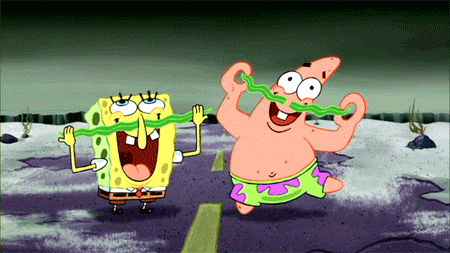Before this module, I have very little knowledge on professional digital profile and how the Internet acts as a powerful tool for many companies and job seekers. Right now, I am very confident to say that I have learnt a lot and I will definitely apply this knowledge into not just future modules but after graduation when I am finding for a job. HOORRRAAYY to being 12 days smarter online after this module!!

At the starting of this module, I shared my digital literacy and right now, I am going to do a review about it.
Building online networks around an area of interest – 1 to 3
Collaborating with others – 1 to 3
Creating online materials (text, audio, images, video) – 2 to 3
These points are now rated 3 as I have done some research during this module and it clearly shows how company goes to the Internet to hunt for potential candidates. I will pick up additional skills like photoshop (I personally think is a plus point in the marketing industry) and video editing
Participating in online communities – 2 to 4
Managing your online identity – 3 to 4
Managing your online privacy and security – 3 to 4
These points are ranked 4 as I aimed to be much more active on social media and I will join the H&M Facebook group since I am currently working with them. After doing research, I am aware that the Internet is never safe so I must learn to manage my online profile. For example, I will upload appropriate photos and share links or websites that is associated with marketing or current world issues.
I will clean and tidy up my Facebook weekly, secure my internship with a company and join in their social media (Facebook and LinkedIn). Personally, I don’t have a LinkedIn account so my very first step would be to create one and start to update my information on it. Thereafter, I can share my LinkedIn with my colleagues during attachment.
After these short but very insightful weeks, I have learnt to be more cautious of how I portrait myself online and the topic that interested me the most is Topic 3, where we touched on building our own professional digital profile. Keeping it authentic and professional at the very same time, I will not lie on my digital profile about my education or my previous job information and just be myself when I update my profile, and not be someone who just wants to impress the employer.
Next was Topic 5, regarding the advantages and disadvantages of Open Access. For the future modules, I will remember to always cite the writer or website which I get the particular piece of information from. This is the proper way of giving recognition to the writer’s work while sharing it to people, it is not my writing so I will never call it mine as this is plagiarism. This topic is very useful for future use (career or educational) and I will definitely utilise it.
Overall, I really enjoyed myself throughout this learning journey. A different approach of teaching through Google Hangouts makes it so much interesting and easier to understand, daily submission taught me to be self- disciplined and what we have learnt is based on what we have researched and read from our classmates. Love this module.


 Being random here, to show you my puppy placing his paw on the leg of my chair while I am typing out this post. Haha. Happy Thursday peeps!
Being random here, to show you my puppy placing his paw on the leg of my chair while I am typing out this post. Haha. Happy Thursday peeps!